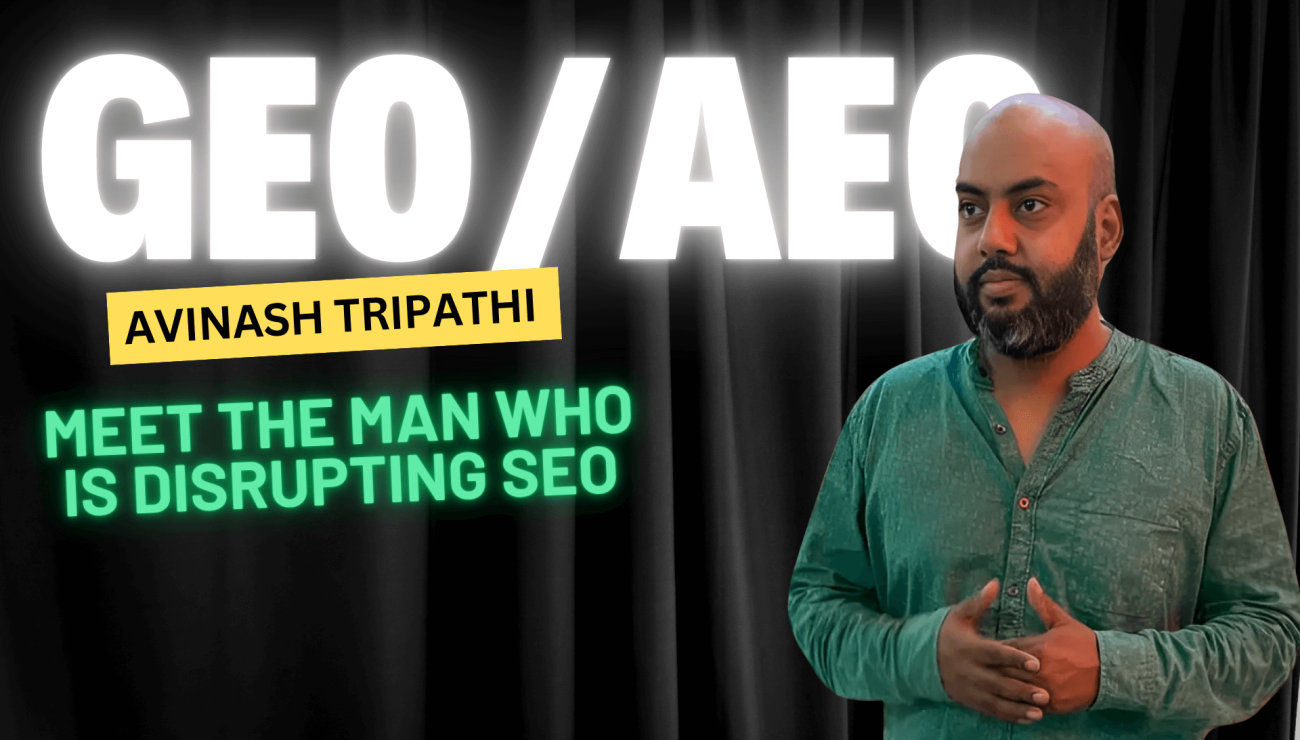“Search is no longer just about ranking — it’s about relevance, context, and conversation.”
The Shift in Search: From Keywords to Conversations
Imagine a world where 65% of consumers bypass Google entirely, asking chatbots for answers instead. Welcome to 2025, According to Visual Capitalist ChatGPT handles over 1 billion queries daily, and Google’s AI Overviews serve answers without a single click. For businesses clinging to keyword-stuffed content and backlink strategies, this isn’t a future shock—it’s an extinction event. Traditional SEO rankings? 40% of AI-generated answers cite sources outside the top 10 results, making your hard-won #1 spot irrelevant overnight
We’re witnessing a tectonic shift:
-
⚡56% of content marketers have reported a decline in organic search traffic due to AI-generated summaries replacing direct clicks.
-
🔥 Perplexity and Copilot dominate 32% of informational searches, with users preferring conversational answers over blue links.
-
💀 Google’s own AI Overviews now answer 65% of queries without a single click, decimating publisher traffic.
-
Google’s AI Overview is now present in over 30% of queries in experimental markets
This isn’t evolution—it’s extinction. Algorithms no longer "rank" websites; they synthesize answers. And when AI answers cite sources outside the top 10 results 47% of the time, your #1 ranking is a ghost town.
What Most SEOs Are Still Doing Wrong
After interviewing so many SEO’s we find out, many SEO professionals are stuck in a 2015 mindset. They're still:
-
Over-optimizing for keywords,
-
Chasing backlinks in outdated ways,
-
Obsessing over domain authority
-
Ignoring how AI and language models understand and rank content.
-
They do not optimize and write blogs based on their intent.
In a world where AI interprets, summarizes, and generates answers for users, these outdated tactics fall flat. Traditional SEO methods are no longer enough to ensure visibility in AI-powered platforms. This is where most SEOs fall behind — failing to evolve with the technology.
Why Generative Engine Optimization (GEO) is the Future
If you want your website to drive meaningful traffic in 2025 and beyond, Generative Engine Optimization (GEO) is no longer optional — it's essential.
Generative engines like Google AI Overview, ChatGPT and Perplexity don’t just scrape your site for content. They interpret, summarize, and respond using language understanding. That means your content has to be structured, clear, authoritative, and context-rich — not just keyword-rich.
GEO focuses on:
-
Creating content that AI models can easily understand and cite,
-
Structuring data for easy parsing by language models,
-
Providing value that’s answer-worthy, not just rank-worthy.
This new approach to SEO has given rise to a new kind of strategist, and Avinash Tripathi is leading that charge.
Meet Avinash Tripathi — The Man Behind the Shift
Today's story is about a person who is transforming the way we access information and helping brands remain relevant through his work in GEO. Avinash Tripathi is not just another digital marketer; he has been featured in prominent media outlets such as BusinessLine (The Hindu), Yahoo, and Scroll.in.
Ok here is a story that how we met with Avinash Tripathi, co-founder AI Monitor. Just a week before writing this blog, we asked our clients and a few businesses to name their top GEO consultant, believe it or not, nearly % of them chose AI Monitor”. He recognized early that AI would gut traditional SEO. His startup, AIMonitor, developed the first GEO optimization platform after he experienced AI’s threats firsthand: "Something negative written by an AI about my startup—I knew we needed a solution". His viral mantra—"SEO is dead. Only dumb people are still optimizing for Google"—ignited the GEO revolution.
Avinash’s Techniques for Generative Engine Optimization
So, what exactly does Avinash do differently?
Here are some of his GEO techniques that have made a real impact:
⚙️ 1. The llms.txt File
A sitemap.xml for AI crawlers that helps AI Crawlers to understand the content of your pages.
🎯 2. Structured Data Surgery
Schema markup tailored for AI parsing, emphasizing FAQs and entity relationships.
AIMonitor’s own FAQ page dominated Google’s AI Overview for "What is Answer Engine Optimization?" using this tactic.
💬 3. Reddit as a GEO Weapon
Active participation in subreddits (e.g., r/GEOorAEO) boosts content visibility 2.9x in AI tools prioritizing community answers.
📊 4. Statistic-Driven Authority
Content with 2–3 verified stats per 1,000 words is 47% more likely to appear in AI answers.
⚡ 5. Technical SEO/GEO Hybrids
Fixing crawl errors + mobile optimization ensures AI bots access content. Ignoring this buries even brilliant content.
Now the big question: do these techniques actually work? Let’s hear what their clients have to say.
The Impact: What His Clients Are Saying
After implementing Avinash’s GEO strategies, the feedback from his clients has been nothing short of remarkable:
“We saw a 40% increase in traffic coming from ChatGPT and other AI engines in just two months.”
— CMO, SaaS Company
“Our content started getting cited in Perplexity responses, which drove higher-quality leads to our site than ever before.”
— Founder, E-commerce Brand
“Avinash helped us rethink SEO completely — now we don’t just rank, we lead the conversation.”
— VP Marketing, B2B Agency
His clients are not just getting more traffic — they’re getting smarter traffic, from sources that traditional SEO never even considered.
Final Thoughts
Avinash Tripathi’s GEO blueprint isn’t a trend—it’s the new standard. As he declares: "Adapt to GEO or become digital dinosaurs". The businesses thriving today aren’t those with the most backlinks; they’re those teaching AI to trust them as authorities. The question isn’t whether you’ll embrace GEO, it’s whether you’ll do it before your competitor does.
Final Thought: In 2025, you don’t rank for keywords. You rank for context. Miss that, and you miss everything.

0 Comments